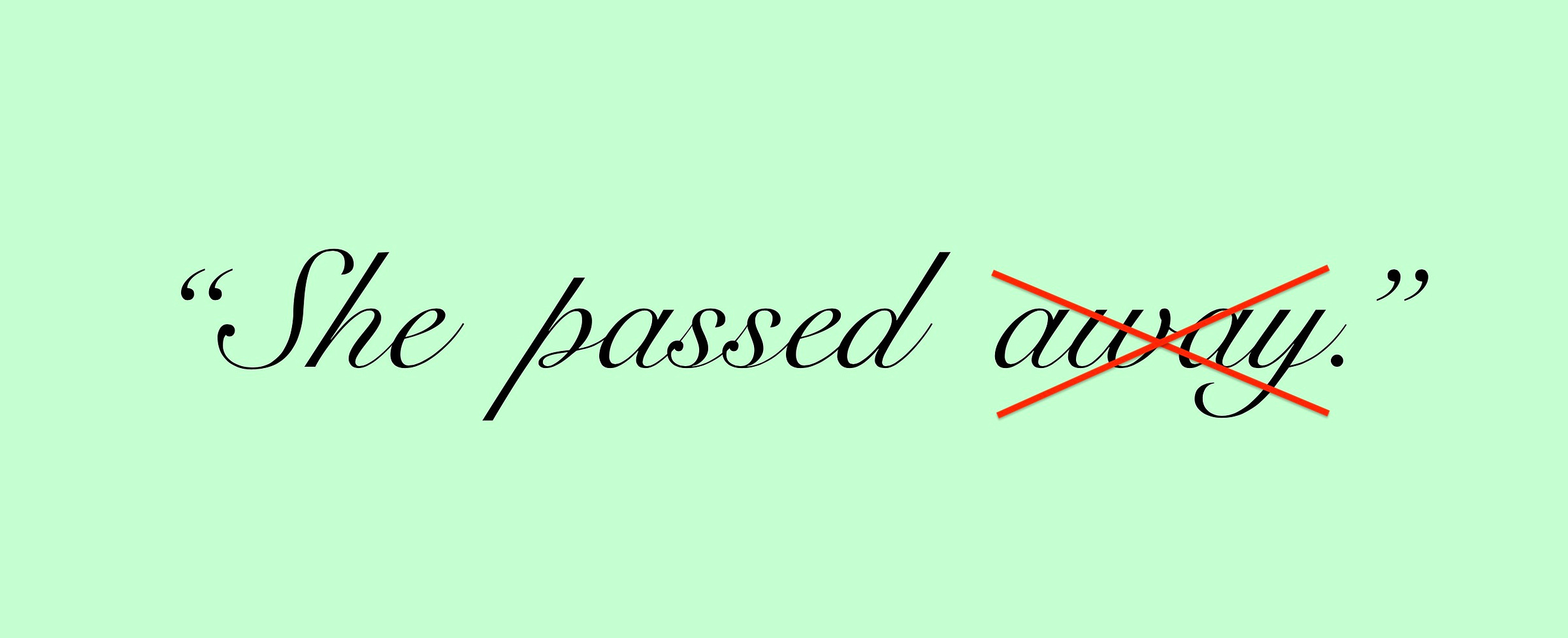The Shift from “Passed Away” to “Passed”
Some thoughts about a recent linguistic trend — or at least I think that’s what it is.
I recently wrote about how I don’t like attending estate sales. One of the many thoughtful responses to that piece came from reader Benjamin, who posted a comment that began like so: “A few years ago, there was an estate sale in my neighborhood when the resident passed. I went since it was only a few houses down…”
With apologies to Benjamin for cutting off his comment, the thing that jumped out at me there was his use of the term “passed” when referring to his neighbor’s death. That brings up something I was already planning to write about at some point, so I guess that point is now.
Let’s start here: When I was a kid, I frequently heard grown-ups saying that someone had “passed away.” It was my parents’ preferred death euphemism, and most of their friends seemed to be partial to it as well. At some point, maybe in my early teens, I followed their example and began using “passed away” myself. I think up until that point I had simply said that a deceased person had “died,” but “passed away” sounded more sophisticated, more adult. It was like unlocking a new level of language, a code where you could refer to something important without explicitly stating it.
I don’t recall exactly when I first heard “passed,” but I’m pretty sure it was while watching a movie or TV show, probably when I was in my teens or early 20s. I remember that it took a beat or two for me to process that “passed” was short for “passed away.” This seemed even more nuanced and sophisticated, almost like a semi-secret wink-wink for those in the know. “Passed away” suddenly sounded stiff and clinical; “passed,” by contrast, sounded worldly and almost cool (much like “cool” itself must have sounded a few generations ago).



